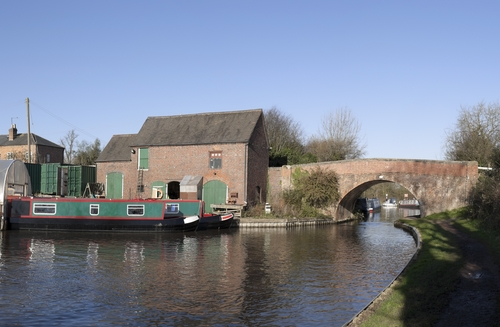
In the three-month pilot project, Blue Boar Contracts used the Sedi-filter’s de-watering bags to contain and de-water sediment taken from a three-kilometre stretch of the Birmingham and Worcester Canal, UK.
The Sedi-filter de-watering bags are made from geotextiles and are designed to capture solid materials without the use of excessive or specialist machinery. The de-watering bags remove excess water from wet wastes, such as sludges, dredged silts and washwaters, through a passive filtration process. Solids are held within the tube, as the water passes through the fabric and flows back to its original source, surrounding ground or another collection point. If the solid waste is contaminated, like the canal sediment, then the wet material can be placed in the Sedi-filter de-watering bags and the water extracted
Simon Potter, director of Blue Boar said: “The use of the Sedi-filter system means that we don’t have to add anything to the contaminated sediment to treat it before it is disposed of. That means we don’t have to have a special licence to deal with the waste and we are not increasing the weight of the sludge. We can dry it out using the Sedi-filter system, so it can be accepted to landfill and, because the water is extracted, we are actually reducing the amount we are taking away, which means lower transport costs and less weight at the landfill weighbridge. We think this system is environmentally better and also more cost effective. It is certainly our preferred method of handling contaminated sediment in future projects.”
Applications for the Sedi-filter de-watering bags include building and development projects, farming, food processing, paper mills and conservation. The sedi-filter system can also be used to create artificial weirs, berms and reefs in watercourses and, in the marine environment, for erosion control or recreation, including surfing reefs.



